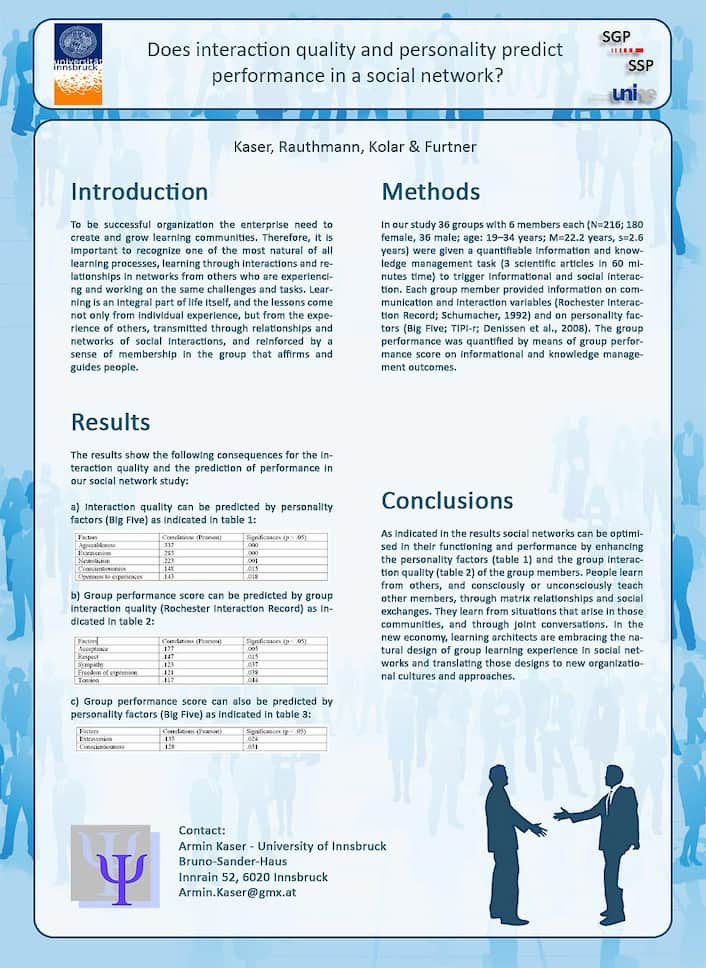Kongressbeitrag zum Congress of the Swiss Psychological Society:
Kaser, Armin, Rauthmann, John F., Kolar, Gerald, Furtner, Marco (2009). Does interaction quality and personality predict performance in a social network?
In The 11th Congress of the Swiss Psychological Society, Neuchâtel: Book of Abstracts, p. 55.

Transkript:
Introduction
To be successful organization the enterprise need to create and grow learning communIties. Therefore, It Is Important to recognize one of the most natural of all learning processes, learning through interactions and relationships in networks from others who are experiencing and working on the same challenges and tasks. Learning is an Integral part of life itself, and the lessons come not only from individual experience, but from the experience of others, transmitted through relationships and networks of social interactions, and reinforced by a sense of membership in the group that affirms and guides people.
Results
The results show the following consequences for the interaction quality and the prediction of performance in our social network study:
- Interaction quality can be predicted by personality factors (Big Five) as indicated in table 1
- Group performance score can be predicted by group interaction quality (Rochester interaction Record) as indicated In table 2
Methods
In our study 36 groups with 6 members each (N=216; 180 female, 36 male; age: 19-34 years; M=22.2 years, s=2.6 years) were given a quantifiable Information and know-ledge management task (3 scientific articles In 60 minutes time) to trigger informational and social interaction. Each group member provided Information on communication and interaction variables (Rochester Interaction Record; Schumacher, 1992) and on personality factors (Big Five; TIPI-r; Denissen et al., 2008). The group performance was quantified by means of group performance score on informational and knowledge management outcomes.
Conclusions
As indicated in the results social networks can be optimised in their functioning and performance by enhancing the personality factors (table 1) and the group interaction quality (table 2) of the group members. People learn from others, and consciously or unconsciousIy teach other members, through matrix relationships and social exchanges. They learn from situations that arise in those communities, and through Joint conversations. In the new economy, Iearning architects are embracing the natural design of group learning experience In social net-works and translating those designs to new organizational cultures and approaches.